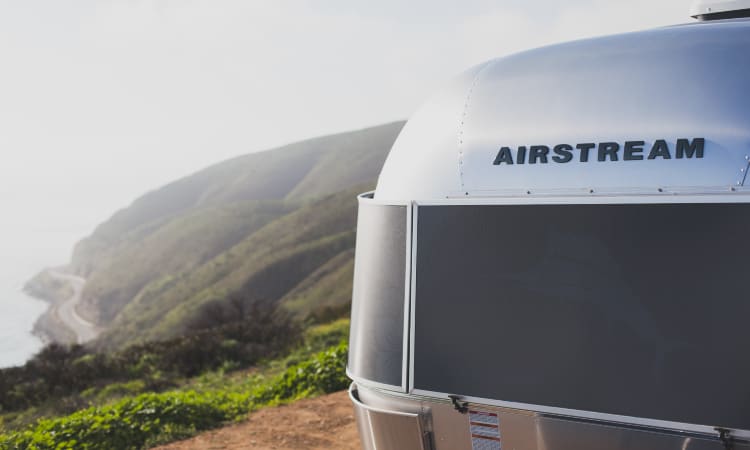When you take your RV for any camping trip, one thing you want to be in working order is your power. There are multiple ways you can get power to your RV, one is through your trailer batteries, and the other is being plugged into shore power.
Two central power systems in your RV will allow your trailer to run smoothly. Your inverter and your converter will enable you to have power throughout your trip and help to make every trip more comfortable.
The RV converter takes the 120 volt power from when you are plugged into shore power and converts it to power to recharge your RV batteries. In every trailer, the converter can be located in multiple locations. The most common spot to find your converter is near your control panel. You will likely see a small vent or fan near your control panel that is an obvious sign that your converter is near.
By the way, as an Amazon Associate, I earn when buying qualified products through links on my site.
Whenever you buy a new or used trailer, it is essential to know how your RVs power works. This article will cover where to find your converter, what precisely a converter is, and more.

Where is the Power Converter in my RV
Although the converter can be located in various places all over your trailer, there are multiple ways to help you find the exact one location.
One is that most converters will have some way to cool them off, such as a fan. Many converters will be located near the control panel and behind what looks like a small vent or fan.
Another way to discover where your converter is located is by having your AC off and turning all of the lights in your trailer. You will then begin to hear a slight buzzing sound that will guide you to the location of your converter.
If you are still having trouble locating your converter, you can always contact your RV manufacturer for guidance and direction.
What is the Purpose of my RV Power Converter
Your RV Converter allows you to use shore power to charge your battery and run DC appliances. The RV Converter will enable you to keep your battery charged anytime you are plugged up to shore power. Shore power can mean being hooked up to a generator or plugging in at a campground.
No matter where you are using your trailer, fifth wheel, or motorhome, an RV power converter is an invaluable aspect of your rig. There are multiple parts of your trailer that will be powered by your battery when not plugged in. These include, but are not limited to:
- Refrigerator
- Lights
- Thermostats
- Vent Fans
Having a battery in working order is essential, and your converter plays a crucial role in recharging your batteries. If you have a converter that is not working correctly, you risk multiple parts of your trailer malfunctioning, leading to larger issues down the road.

What’s the Difference Between an Inverter and a Converter
Within each trailer, fifth wheel, or motorhome you will find an inverter and a converter. Both of these serve completely different purposes, but one thing they do have in common is that they both supply power to your rig.
An inverter will take power from your battery to run individual items and appliances in your trailer. It will take 12 volt power from your battery and convert it to 120 volt power to power items in your trailer or fifth wheel. One thing to always keep in mind that it will not power everything in your trailer.
Most of the time, with the inverter that your rig comes with, you can run lights, your slide mechanisms, and a few more things. An inverter alone will not power everything in your rig but allows you to get enough power to run some aspects of your rig.
A converter will take shore power and convert it to recharge your battery to be used in the future. Having a converter in your rig is the only way to restore your RV battery when plugged up to power. Whether you are plugged into a campground hookup, use solar, or have a generator, your converter needs power to transform the 120v household power into energy to recharge your battery.
A converter and inverter are installed in your rig and allow your trailer to be powered while you are on the road. While you will have one in your rig, you always have the option to change your converter out for ones that are larger and more powerful.
How do I know if my RV Converter has Gone Bad
A converter within your RV is a precious resource to your RV’s power aspects that you will need. You should be aware of a few signs that will point to an issue with your converter.
- Lights Dimming
- Refrigerator not maintaining temperatures
- Electronics not working properly
If you sense that something is wrong with your converter, it is imperative to consult a professional. A professional can get to the root of the issue quickly and efficiently, allowing you to have a properly working trailer in no time.
Installing a converter yourself is not recommended because you can cause a lot of issues down the road if you do it wrong. One problem you can run into if you install your converter incorrectly is burning up your electrical system, which is a far larger problem than a broken converter.
Although replacing a converter can be a bit more pricey depending on the size of the converter you need, it is something that you use on every single trip you take. Typically the cost for replacing your converter can range from $200 to $1400, but it is an investment that will prolong the life of your RV.
Conclusion
Having a trailer, RV, or fifth wheel can help your family create many memories that will last a lifetime. Every adventure you take, you can load up your trailer and pull it behind you to your next destination. Before taking off on your first road trip, it is essential to understand your trailer and how everything works.
One aspect of your RV or trailer that you should know backward and forwards is your trailer’s electrical system. A few components you should understand are inverters and converters. Inverters take your battery and convert it to power for your RV. Your converter takes 120v shore power and converts it into energy that will recharge your 12v battery.
You can typically find your converter near your control panel, and if you ever have any issue with your converter, you need to consult a professional ASAP. Taking the time to understand what a converter in your RV does and why it is necessary is vital before heading out on your first trip.
Your rig’s electrical system helps make your journey more comfortable and allows you to use many items you typically use in your home. It is essential to understand your rig and its electrical system because it is a lot easier to narrow down the cause if something goes wrong.
